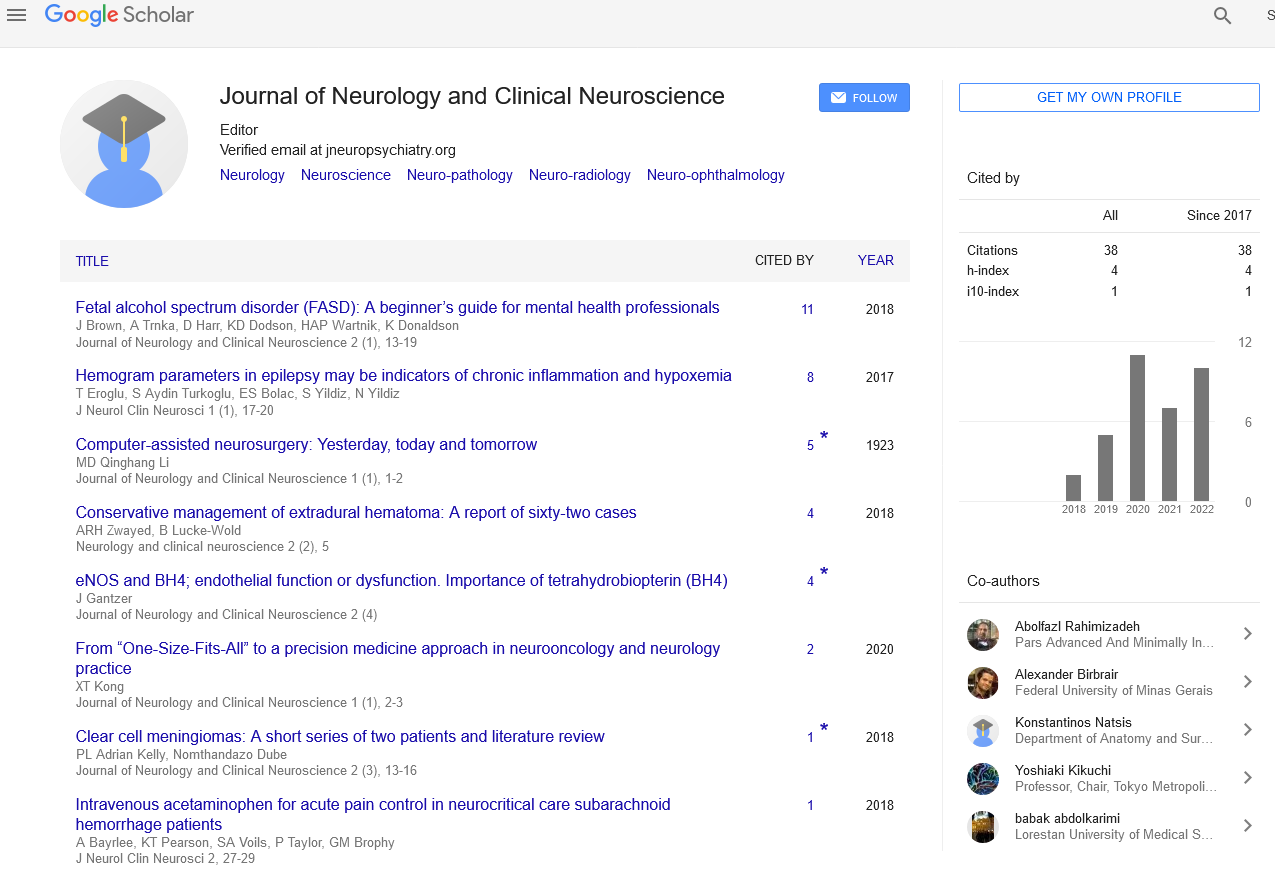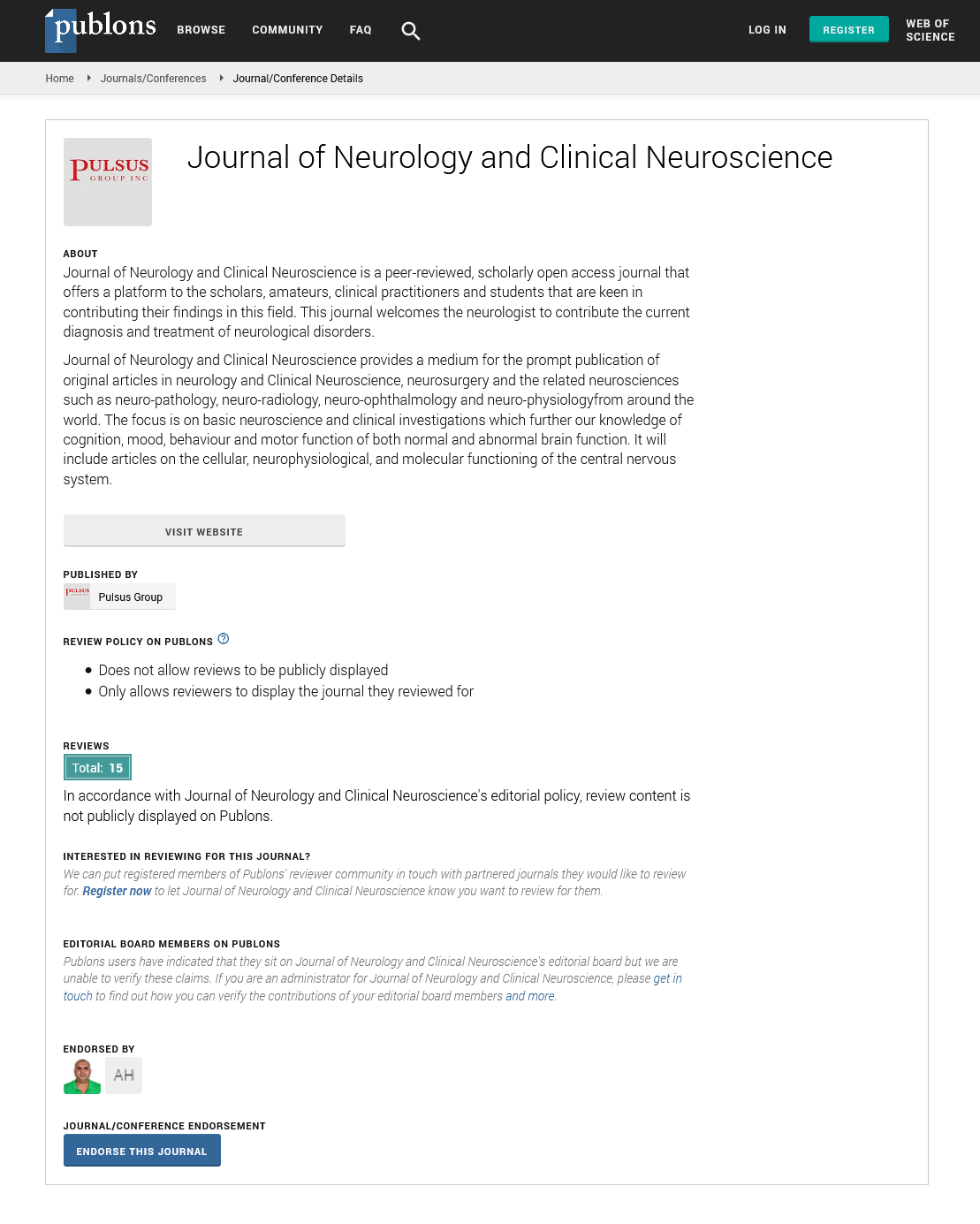Sign up for email alert when new content gets added: Sign up
Immunomodulatory Imide Drugs (IMiDs): Therapeutic strategies for Neurological Disorders targeting Neuroinflammation
Webinar on 7th International Conference on Neuroscience and Neurological Disorders
March 18-19, 2022 | Webinar
Dong Seok Kim
AevisBio, Inc., ROK & USA
ScientificTracks Abstracts: J Neurol Clin Neurosci
Abstract :
Statement of the Problem: Neurological disorders are the second leading cause of death in the elderly population worldwide (WHO, 2001; GBD 2016 Neurology Collaborators, 2019). However, there remains an immense unmet medical need in the availability of effective drug treatments for most neurological disorders. For neurodegenerative diseases such as Parkinson's disease (PD) and Alzheimer's disease (AD), drugs that can prevent, slow, or cure the disease have yet to be found. Methodology & Theoretical Orientation: Neuroinflammation represents a common trait in the pathology and progression of numerous neurological disorders, including neurodegenerative diseases and brain injuries. Immunomodulatory imide drugs (IMiDs) are analogs of the drug thalidomide that possess pleiotropic biological actions through cereblon, an E3 ligase, and/or independently of cereblon interaction. These comprise of anti-proliferative, anti-angiogenic, immune-modulatory and, in particular, potent anti-inflammatory effects. Based on the pivotal role of neuroinflammation in neurological disorders, the therapeutic potential of IMiDs was evaluated in a series of disease models. Findings: Several novel IMiDs including 3,6'-dithiopomalidomide (DP) with in vivo anti-inflammatory actions showed a promising therapeutic potential in traumatic brain injury models and other neurodegenerative animal models including AD and PD. Conclusion & Significance: Animal studies with IMiDs support that neuroinflammation is a promising therapeutic target of neurological disorders and these drugs warrant evaluation in additional disease models and further development for clinical studies. Immunomodulatory imide drugs interactions with cereblon (CRBN) and TNF-α mRNA. IMiDs destabilize the 3′-untranslated region (3′- UTR) of TNF-α mRNA, inhibiting TNF-α protein synthesis and inhibiting inflammatory pathways. The glutarimide moiety of the thalidomide backbone catalyzes E3 ubiquitin ligase complex formation, modifying target proteins for proteolysis. (Jung YJ, et al., 2021)
Biography :
Dong Seok Kim is the founder and CEO of AevisBio, Inc., a biotech focusing on targeted protein degradation (TPD) system. He has his expertise in ubiquitin-mediated protein degradation system and inflammation that is the basis of the drug development strategy of AevisBio, Inc. He has identified a novel series of Immunomodulatory imide drugs (IMiDs), exhibit multiple biological effects providing diverse drug development platforms. Several IMiDs are under investigation in diverse disease models including cancer and neurological disorders and in preparation for clinical studies.





